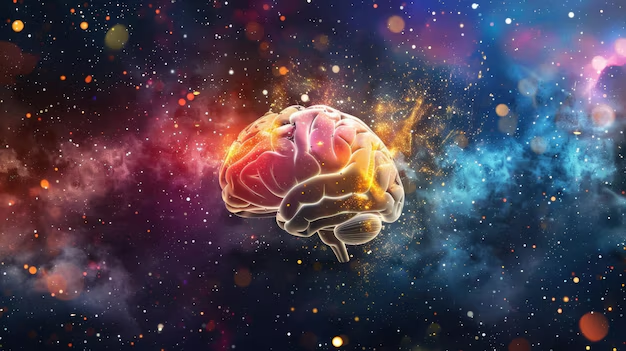The universe and the human brain are two of the most complex structures known to us. Surprisingly, despite their vast differences in scale, they share striking similarities. In this blog post, we’ll explore the top 5 fascinating similarities between the cosmic web and the human brain, providing updated data and insights to captivate our cosmic-loving readers.
1. Mind-blowing Structure and Connectivity Between Both
Both the cosmic web and the human brain exhibit a network of nodes connected by filaments. In the universe, galaxies are nodes connected by filaments of dark matter, creating a web-like structure. Similarly, the human brain consists of neurons (nodes) connected by axons and dendrites (filaments). A study published in Nature Scientific Reports in 2020 highlighted that the distribution of matter in the universe and the connectivity of neurons in the brain show similar patterns of complexity and organization.

2. Amazingly Similar Fractal Patterns of Both
Fractal geometry is a common feature in both the universe and the brain. Fractals are self-similar patterns that repeat at different scales. The large-scale structure of the universe, with its clusters and superclusters of galaxies, forms fractal patterns. Likewise, the brain’s neuronal networks also display fractal geometry. Moreover, the research has shown that the fractal dimension of neural networks is similar to that of the cosmic web, suggesting a universal principle governing complex systems.

3. Both Possess Energy Efficiency Optimization Ability
Both the brain and the cosmic web optimize their energy usage. The brain uses only about 20 watts of power, distributing energy efficiently to process information. Similarly, the universe’s structure is thought to optimize the distribution of dark energy, ensuring that galaxies and cosmic structures form in an energy-efficient manner. This parallel in energy efficiency is a fascinating similarity that highlights the intrinsic optimization processes in both systems.

4. Both are Strong Information Processing
The brain processes vast amounts of information through its network of neurons. Each neuron can connect to thousands of others, allowing complex computations and communication. Similarly, the cosmic web can be seen as a vast information network, where galaxies and black holes interact, exchanging gravitational and electromagnetic information. Moreover, the study of this parallel can provide deeper insights into how complex systems process and transmit information.

Also Read: Islam And Cosmology – Vast Heavenly Concepts By Quran And Science
5. Both Have Surprising Evolution Over Time
Both the universe and the human brain evolve over time, increasing in complexity. The universe, as latest researches tell, is continuously evolving to form galaxies, stars, and planetary systems. Likewise, the brain develops from a simple neural tube in embryos to a highly complex organ capable of consciousness and advanced thought. This evolutionary parallel underscores the dynamic nature of both systems, constantly adapting and increasing in complexity.

6. Both Have Self-Organizing Systems
Both the cosmic web and the human brain are self-organizing systems. In the cosmos, gravitational forces drive the self-organization of galaxies and cosmic structures. Similarly, the brain’s neurons self-organize based on synaptic activity and neural plasticity. This self-organizing nature ensures optimal function and adaptability in both the universe and the brain, showcasing a remarkable parallel in their underlying mechanisms.

7. Both Exhibit Scale-invariant Properties
The cosmic web and the human brain both exhibit scale-invariant properties, meaning their structures look similar at different scales. In cosmology, this property is observed in the distribution of galaxies, which appear consistent whether viewed on a small or large scale. In neuroscience, the brain’s neural networks show similar patterns across different levels of magnification. This scale-invariance points to universal principles that govern the formation and organization of complex systems.

8. Both Have Deep Communication Networks
Effective communication is crucial in both the cosmic web and the human brain. In the universe, gravitational waves and electromagnetic radiation facilitate communication between cosmic structures, enabling the transfer of information across vast distances. In the brain, electrical impulses and neurotransmitters allow neurons to communicate rapidly and efficiently. Therefore, understanding these communication networks can reveal how complex systems maintain coherence and functionality.

Final Word
The similarities between the cosmic web and the human brain are not just fascinating but also profoundly intriguing. By understanding these parallels, we can gain deeper insights into the fundamental principles governing complexity and connectivity in nature. So, for cosmic lovers, these connections offer a glimpse into the universal patterns that shape our world and our minds.



Leave a Reply